
Pizza Hut, LLC is an American multinational pizza restaurant chain and international franchise founded in 1958 in Wichita, Kansas by brothers Dan and Frank Carney. The chain, headquartered in Plano, Texas, operates 19,866 restaurants worldwide as of 2023.
Simulation video games are a diverse super-category of video games, generally designed to closely simulate real world activities. A simulation game attempts to copy various activities from real life in the form of a game for various purposes such as training, analysis, prediction, or entertainment. Usually there are no strictly defined goals in the game, and the player is allowed to control a character or environment freely. Well-known examples are war games, business games, and role play simulation. From three basic types of strategic, planning, and learning exercises: games, simulations, and case studies, a number of hybrids may be considered, including simulation games that are used as case studies. Comparisons of the merits of simulation games versus other teaching techniques have been carried out by many researchers and a number of comprehensive reviews have been published.
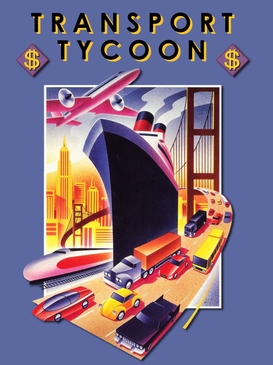
Transport Tycoon is a city-based video game designed and programmed by Chris Sawyer, and published by MicroProse on 15 November 1994 for DOS. It is a business simulation game, presented in an isometric view in 2D with graphics by Simon Foster, in which the player acts as an entrepreneur in control of a transport company, and can compete against rival companies to make as much profit as possible by transporting passengers and various goods by road, rail, sea and air.
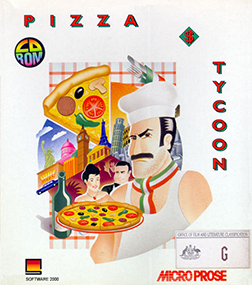
Pizza Tycoon is a business simulation video game. The game was designed by the German company Cybernetic Corporation and Software 2000 in 1994, and was published by Assemble Entertainment after its re-release in 2017. It was published and adapted for the American market by MicroProse with changed artwork and locations.

RollerCoaster Tycoon 2 is a 2002 construction and management simulation game developed by Chris Sawyer and published by Infogrames Interactive. Released for Windows as the sequel to RollerCoaster Tycoon, the game simulates the management of amusement parks.
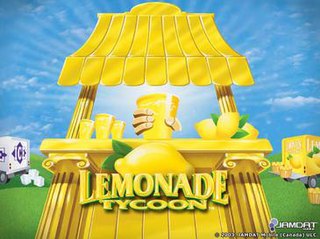
Lemonade Tycoon, first released as Lemonade Inc., is a 2002 business simulation game created in Adobe Shockwave. A free, limited version is available for online play at many sites, while a full version with no time restrictions can be purchased online. The goal of Lemonade Tycoon is to sell lemonade for profit, progressing from the suburbs to a stadium. The last update (1.1.9) warranted a rename to Lemonade Tycoon Deluxe. In 2009, Electronic Arts published a version of Lemonade Tycoon for iOS. The sequel, Lemonade Tycoon 2: New York Edition is also available on Mac OS X, published by MacPlay.

Zoo Tycoon is a business simulation game developed by Blue Fang Games and released by Microsoft. Although first released for Microsoft Windows and Macintosh in 2001, it was ported to the Nintendo DS in 2005. It was followed by two expansion packs, Dinosaur Digs and Marine Mania, which were released in 2002, as well as a sequel, Zoo Tycoon 2, released in 2004.

Airport Tycoon is a business simulation game released for Windows 95/98 in 2000. It was developed in the United Kingdom by Krisalis Software. In Airport Tycoon, the player must successfully build and manage an airport without going bankrupt. There have been two sequels created for Airport Tycoon: Airport Tycoon 2 and Airport Tycoon 3. There was to be a Nintendo 64 version released as well, but this version was cancelled for unknown reasons.
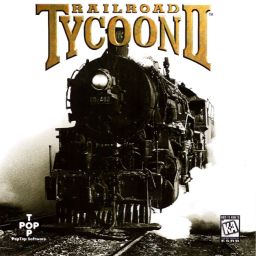
Railroad Tycoon II is a business simulation video game in the Railroad Tycoon series developed by PopTop Software and published by Gathering of Developers. It was released for Microsoft Windows, Mac OS, PlayStation and Dreamcast. It was later ported and released for Linux.

Mall Tycoon is a business simulation game, released in 2002 for Windows 95/98/ME. It was developed by Holistic Designs and published by Take-Two Interactive. It has two sequels: Mall Tycoon 2 and Mall Tycoon 3.
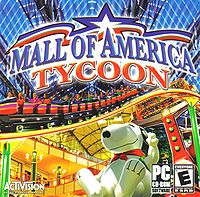
Mall of America Tycoon is a business simulation game created by Activision and released on September 28, 2004 for Windows. The goal is to successfully create and run a mall based on the real Mall of America in Bloomington, Minnesota. The player must manage the income, store contracts, and special event days. However, unlike other tycoon games, there is a way to win a freeplay game.

Business simulation games, also known as tycoon games or economic simulation games, are video games that focus on the management of economic processes, usually in the form of a business. Pure business simulations have been described as construction and management simulations without a construction element, and can thus be called simulations. Micromanagement is often emphasized in these kinds of games. They are essentially numeric but try to hold the player's attention by using creative graphics. The interest in these games lies in accurate simulation of real-world events using algorithms, as well as the close tying of players' actions to expected or plausible consequences and outcomes. An important facet of economic simulations is the emergence of artificial systems, gameplay and structures.

Life simulation games form a subgenre of simulation video games in which the player lives or controls one or more virtual characters. Such a game can revolve around "individuals and relationships, or it could be a simulation of an ecosystem". Other terms include artificial life game and simulated life game (SLG).

Airline Tycoon is a business simulation game by Thomas Holz and Robert Kleinert, in which the player must successfully manage an airline. The original was developed by Spellbound Entertainment, and published by Infogrames Deutschland, but the succeeding versions were published by a variety of publishers.
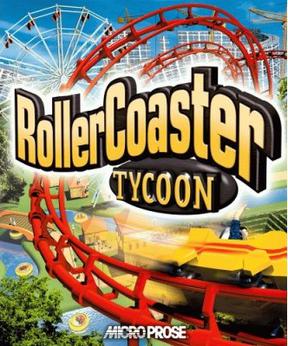
RollerCoaster Tycoon is a 1999 construction and management simulation video game developed by Chris Sawyer and published by Hasbro Interactive. It was released for Windows and was later ported to the Xbox by Frontier Developments in 2003. It is the first game in the RollerCoaster Tycoon series.

Fast Food Tycoon 2, also known as Pizza Connection 2 in Europe, is a business simulation game on the PC in which the player starts out as the owner of a small pizza parlor and must gain popularity and eventually own the pizza empire. A sequel of Fast Food Tycoon, Fast Food Tycoon 2 incorporates a variety of variables of which the player must overcome to reach unique goals in 10 different international cities, ranging from New York City to Moscow to Tokyo. A sequel Pizza Connection 3 was slated for 2018 release.

Skateboard Park Tycoon is a 2001 business simulation game developed by Cat Daddy Games for Windows and Airborne Entertainment for mobile, and published by Activision. The game tasks players with creating, managing and skating in a skateboard park. Upon release, the game received mixed reviews, with critics generally praising the game's concept and options for creating skate parks, but critiquing its visual presentation and simplicity. The game generated two sequels, Skateboard Park Tycoon: World Tour 2003 and Skateboard Park Tycoon 2004: Back in the USA.

Donald Trump's Real Estate Tycoon is a business simulation game developed by RedCap and published by Activision Value. It was released for Microsoft Windows on November 7, 2002. It was later published in Europe by Xplosiv on September 3, 2004. On October 20, 2004, Activision Value published a version of the game that was developed by Airborne Entertainment for J2ME and BREW-enabled mobile phones, as well as the N-Gage QD. It is themed around the businessman Donald Trump, who provided his voice for both versions of the game.
Construction and management simulation (CMS), sometimes also called management sim or building sim, is a subgenre of simulation game in which players build, expand or manage fictional communities or projects with limited resources. Strategy video games sometimes incorporate CMS aspects into their game economy, as players must manage resources while expanding their project. Pure CMS games differ from strategy games, however, in that "the player's goal is not to defeat an enemy, but to build something within the context of an ongoing process." Games in this category are sometimes also called "management games".

Eco Tycoon: Project Green is a business simulation game which focuses on managing various environmental concerns while maintaining the region's economy. It was developed by Virtual Playground and published by ValuSoft in 2009.

















